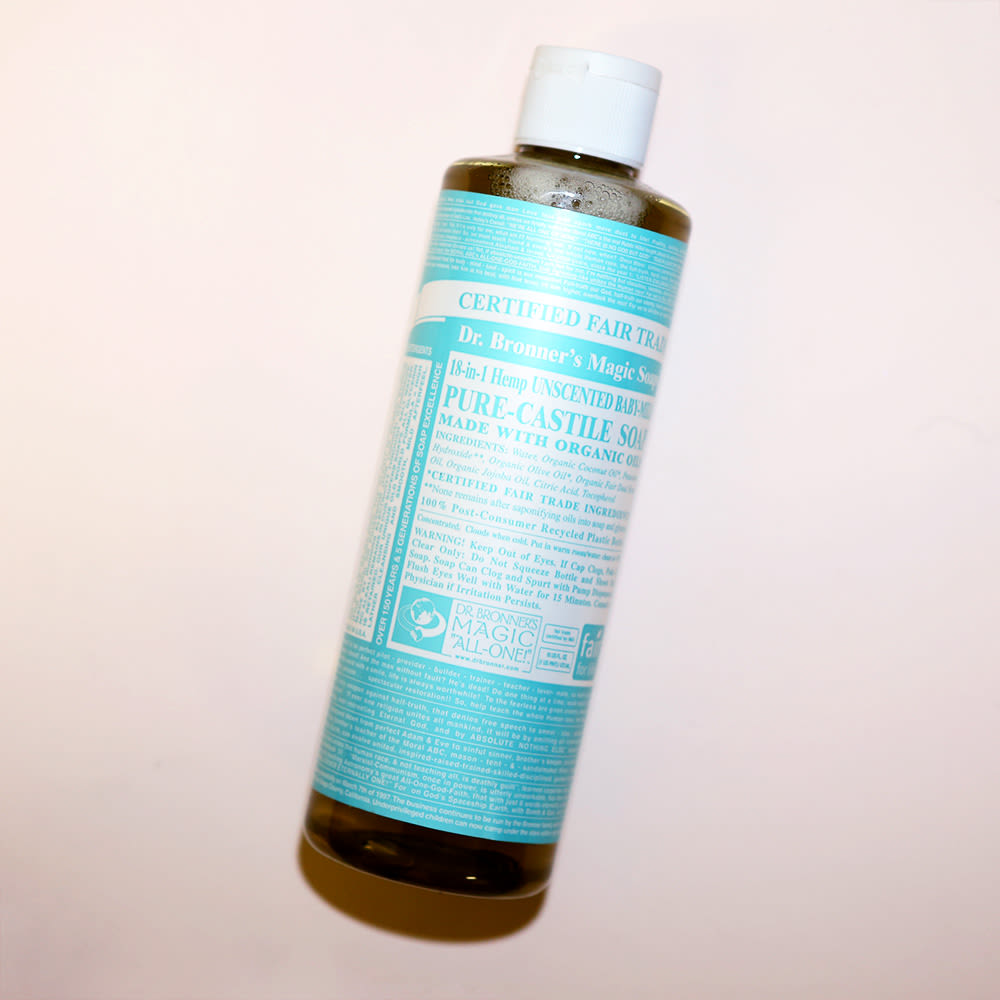Simply put, Dr. Bronner’s Magic Soap is the greatest cleansing liquid available. It’s grossly effective (getting clean is great, but seeing exactly how dirty you were just a few minutes prior by watching the brownish water trailing down the drain is disgusting), it works for everything, and its label makes for great reading material if you’re ever stuck in the bathroom for an extended period of time. But while many a Top Shelfer has mentioned the soap in one form or another (be it Baby, Peppermint, or any of the other six scents), there’s a rich history behind this cult favorite, text-heavy bathroom staple.
That’s where Marc Maron and his amazing podcast, WTF with Marc Maron, comes in. If you’re not familiar with the comedian, imagine a weird love child of Louis C.K., Sarah Silverman, Brian Williams, and Statler and Waldorf from the Muppets. Though he typically holds these intimate, off-the-cuff interviews with major figures in entertainment (Mindy Kaling, Jack White, Jon Hamm, and Ira Glass are particularly good listens), a few weeks ago he chatted with the grandson of Dr. Emanuel Bronner, and current president of the company, David Bronner.
Some of the highlights from the interview:
-Emanuel Bronner was a Jewish, third-generation master soapmaker in Southern Germany in the early 1900s who narrowly missed the Nazi takeover by moving out of the country due to generational rifts with his father and uncles.
-He held an equivalent of a masters in chemistry. Though whether or not he actually earned a doctorate wasn't discussed in this podcast.
-He pioneered the invention of liquid soap.
-His family’s original soap company in Germany was taken over and Aryanized by the Nazis. The new management even sent a letter out to the prior consumer base to alert them about the changes.
-Emanuel Bronner lead a very spiritual life, largely inspired by Judaism, the Holocaust (he lost both of his parents in concentration camps), and the nuclear armed war. He felt “urgently called upon” to help people realize their “transcendent unity,” and felt the label of his product was the best medium on which to spread the message.
-He was intense, to say the least, even spending time in Elgin Mental Health Center outside of Chicago.
-He escaped from the mental institution and moved out west to Los Angeles, speaking often in Pershing Square. People would by his soap after his sermons, which is where he got the idea to print his ideology on the packaging.
-A man by the name of Fred Walker willingly crucified himself for Dr. Bronner’s Peace Plan on a Chicago bridge in the 1940s.
-The company was sued by Olympic swimmer, Mark Spitz (around the time that Michael Phelps bested his gold medal record), for using his name on their packaging as an example of a fine Jewish role model. They ended up cutting him a check for an undisclosed amount.
-You can use the soap for pretty much anything, including brushing your teeth if you run out of toothpaste.
-Dr. Bronner wouldn’t sell to retailers that weren’t interested in hearing about his philosophies. Walmart, for example, was one that the company historically refused to allow to distribute its products, though the stores now carry the line.
Find the whole interview here. The first 20 minutes is mostly about Marc’s personal life (including his new relationship with Moon Zappa); skip ahead to get to strictly the soapy stuff.
Photo by Elizabeth Brockway.

